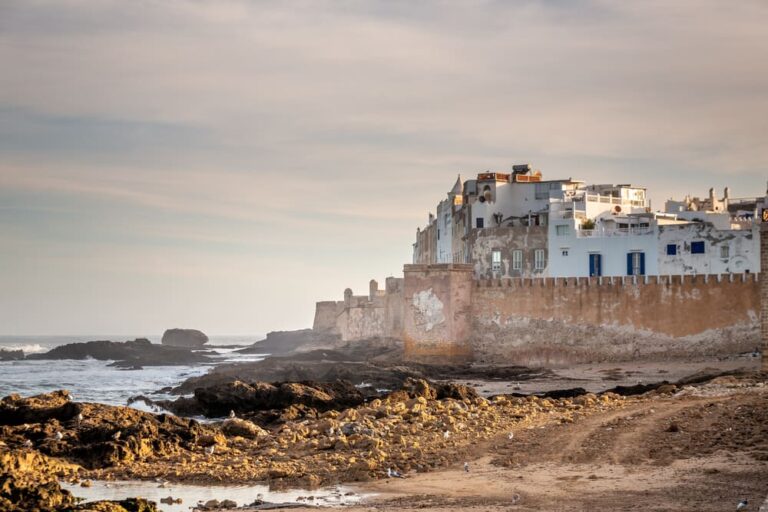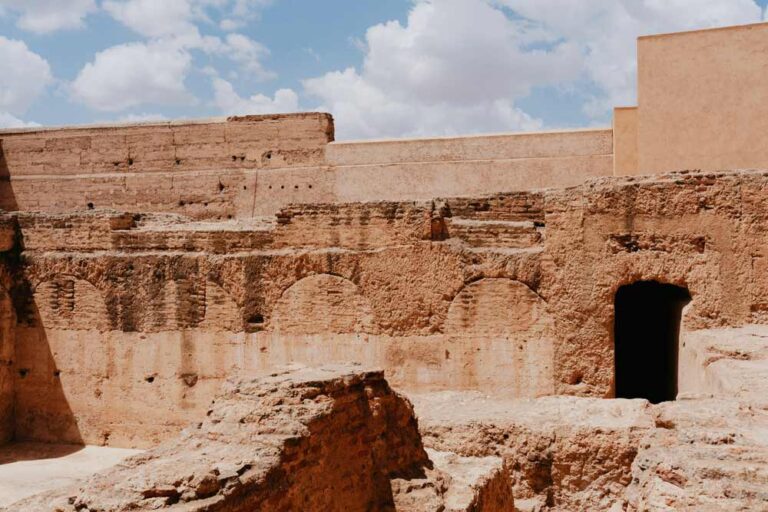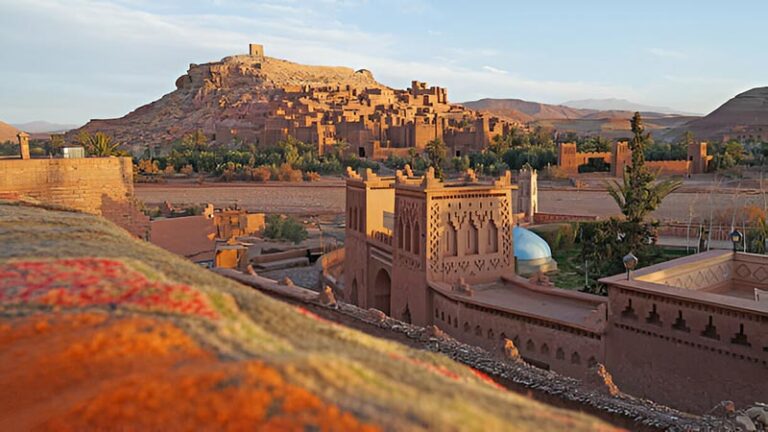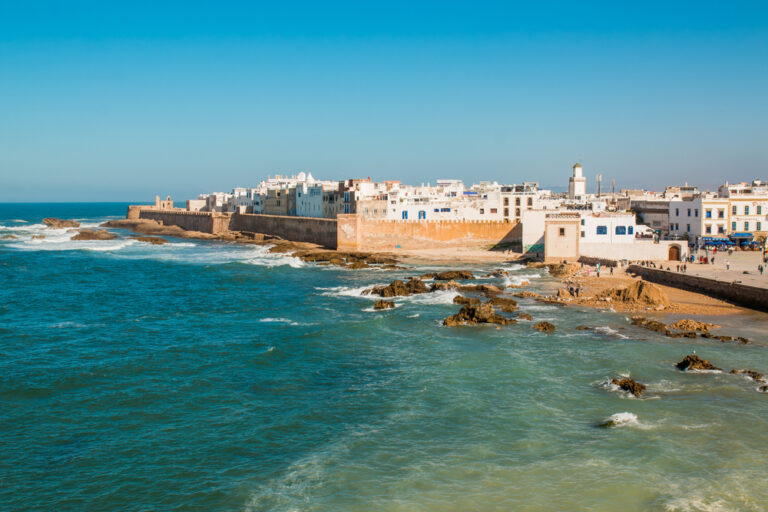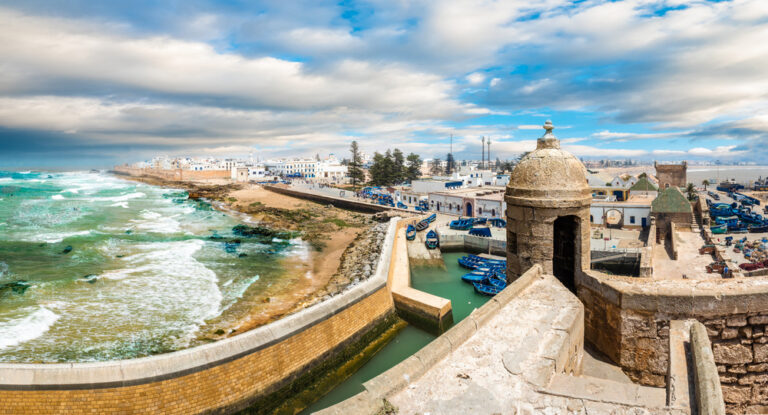The Atlas Mountains: A Natural Wonderland
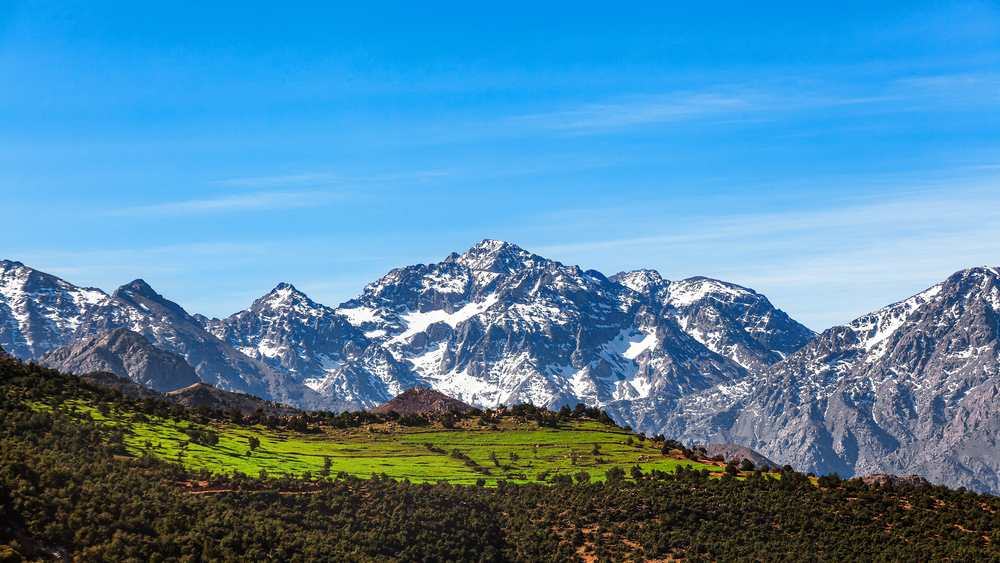
The Atlas Mountains, Morocco’s natural wonderland, where rugged peaks, lush valleys, and traditional Berber villages await your exploration. In this section of our travel blog, we’ll be your guide to discovering the breathtaking beauty and cultural richness of the Atlas Mountains.
The Atlas Mountains, extending across Morocco, offer a remarkable contrast to the bustling cities and desert landscapes. This mountain range is divided into three regions: the High Atlas, Middle Atlas, and Anti-Atlas, each with its unique charm. Prepare to embark on a journey filled with hiking adventures, cultural encounters, and awe-inspiring vistas.
1. Getting to the Atlas Mountains
Transportation Options: Getting to the Atlas Mountains is an adventure in itself. Depending on your starting point, you can choose from several transportation options. If you’re coming from Marrakech, you can take a private car, shared taxi, or a bus to the mountainous regions. For longer distances, consider domestic flights to cities like Marrakech, Ouarzazate, or Errachidia.
Travel Tips:
- Roads in the Atlas Mountains can be winding and narrow, so if you’re not comfortable driving in mountainous terrain, consider hiring a local driver.
- Ensure your vehicle is in good condition, especially if you plan to explore remote areas.
- Check the road conditions and weather forecasts, as winter snow and rain can affect travel plans.
2. Where to Stay in the Atlas Mountains
Mountain Retreats: Experience the tranquility of the Atlas Mountains by staying in mountain retreats and lodges. These accommodations often offer stunning views, comfortable rooms, and a serene atmosphere, making them ideal for relaxation and exploration.
Berber Guesthouses: For a more immersive experience, consider staying in Berber guesthouses in traditional villages. This allows you to connect with local communities, enjoy home-cooked meals, and learn about Berber traditions.
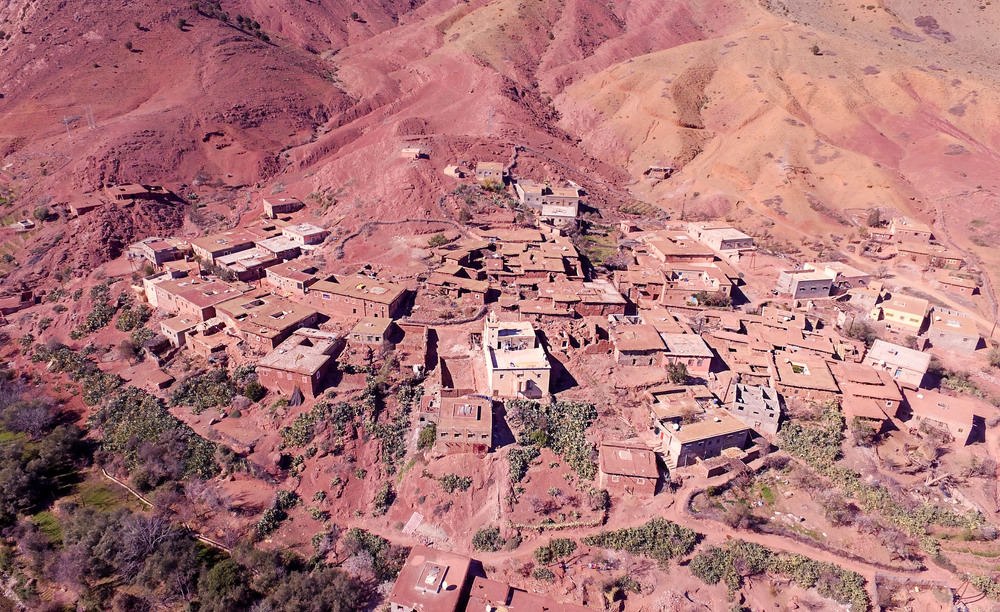
Eco-Friendly Lodges: Many eco-friendly lodges are nestled in the Atlas Mountains, providing sustainable accommodations with minimal environmental impact. These lodges often offer activities like hiking, birdwatching, and stargazing.
In the next section, we’ll guide you through the hiking experiences that await in the Atlas Mountains.
3. Hiking in the Atlas Mountains
Popular Trails and Routes: The Atlas Mountains offer a plethora of hiking opportunities, catering to both beginners and experienced trekkers. Some popular trails and routes include:
- Toubkal National Park: Home to Mount Toubkal, North Africa’s highest peak, this park offers various trekking options with diverse landscapes.
- Todra Gorge: Explore the dramatic canyons of Todra Gorge and hike along the riverbed, surrounded by towering rock walls.
- Atlas Valleys: Wander through picturesque valleys like the Ourika Valley, Imlil Valley, and Dades Valley, each offering unique scenery and cultural experiences.
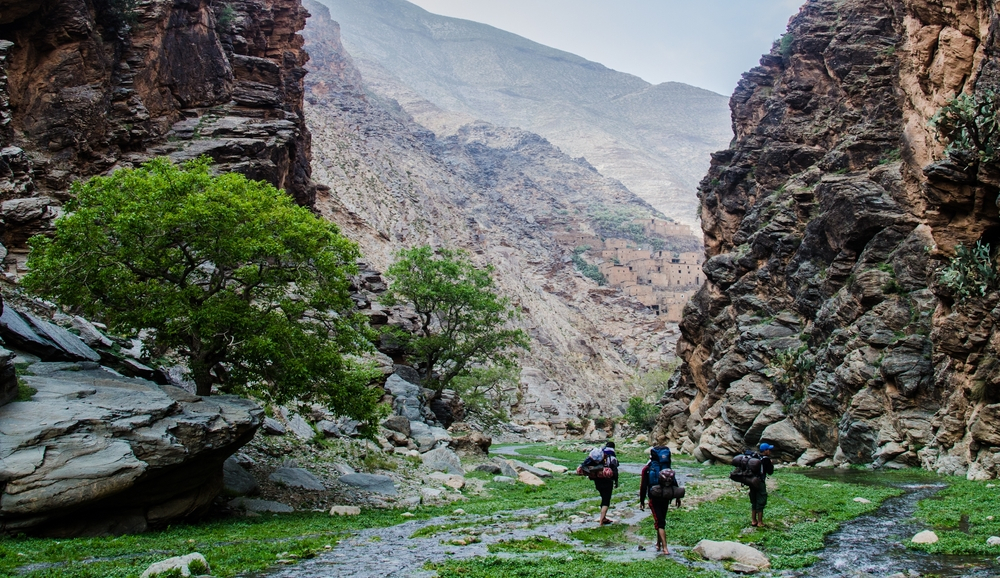
Guided Trekking Tours: While experienced hikers may opt for independent treks, guided trekking tours are recommended for those new to the region. Local guides provide valuable insights into the terrain, culture, and safety precautions. They can also arrange logistics, including mules for carrying gear on multi-day treks.
4. Berber Villages and Cultural Experiences
Meeting Local Communities: One of the highlights of the Atlas Mountains is the opportunity to connect with Berber communities. Visit villages like Aroumd, Imlil, or Aït Benhaddou to learn about Berber customs, traditions, and daily life. Engaging with locals over tea and sharing stories is a memorable cultural experience.
Participating in Berber Traditions: Immerse yourself in Berber traditions by taking part in activities like bread-making, rug-weaving, or even learning traditional Berber dances. These experiences offer a deeper understanding of the local way of life and foster cultural appreciation.
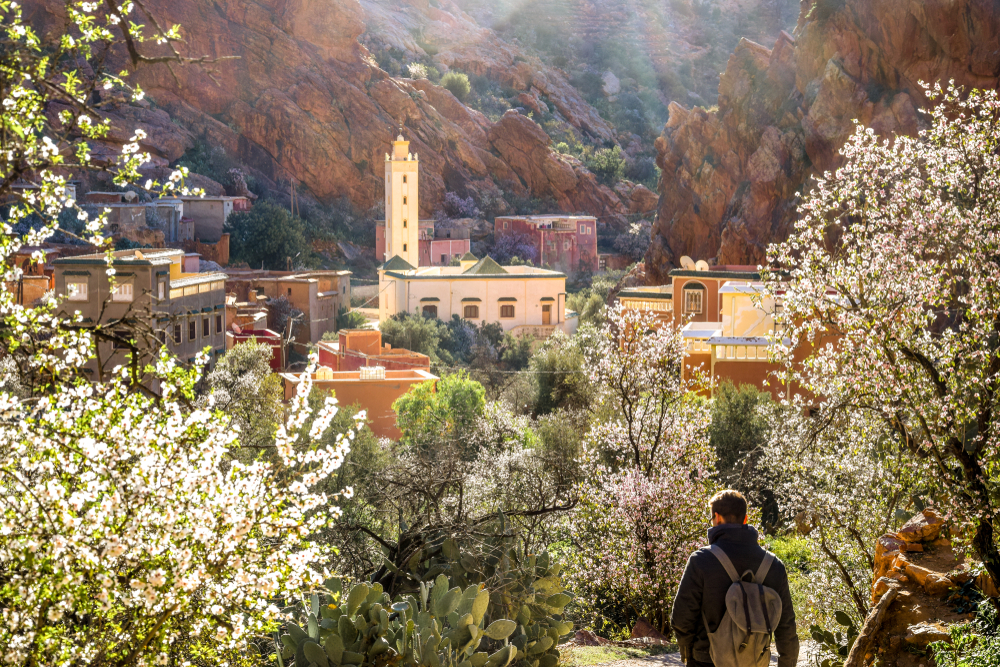
In the next section, we’ll explore scenic drives and day trips that allow you to discover the diverse landscapes surrounding the Atlas Mountains.
5. Scenic Drives and Day Trips
Tizi n’Tichka Pass: Embark on a scenic drive along the Tizi n’Tichka Pass, a high mountain pass in the Atlas Mountains. This road offers breathtaking views of the surrounding peaks, valleys, and traditional Berber villages. Be sure to stop at viewpoints along the way for memorable photo opportunities.
Ouzoud Waterfalls: Venture on a day trip to the Ouzoud Waterfalls, located about 150 kilometers from Marrakech. These stunning cascades plunge over 100 meters into a lush valley, creating a picturesque natural spectacle. You can hike down to the base of the falls and enjoy a boat ride.
Aït Benhaddou: Visit Aït Benhaddou, a UNESCO World Heritage Site and a historic ksar (fortified village). This remarkable mudbrick village has served as a backdrop for numerous films and TV shows. Explore its narrow streets, climb to the top for panoramic views, and learn about its rich history.
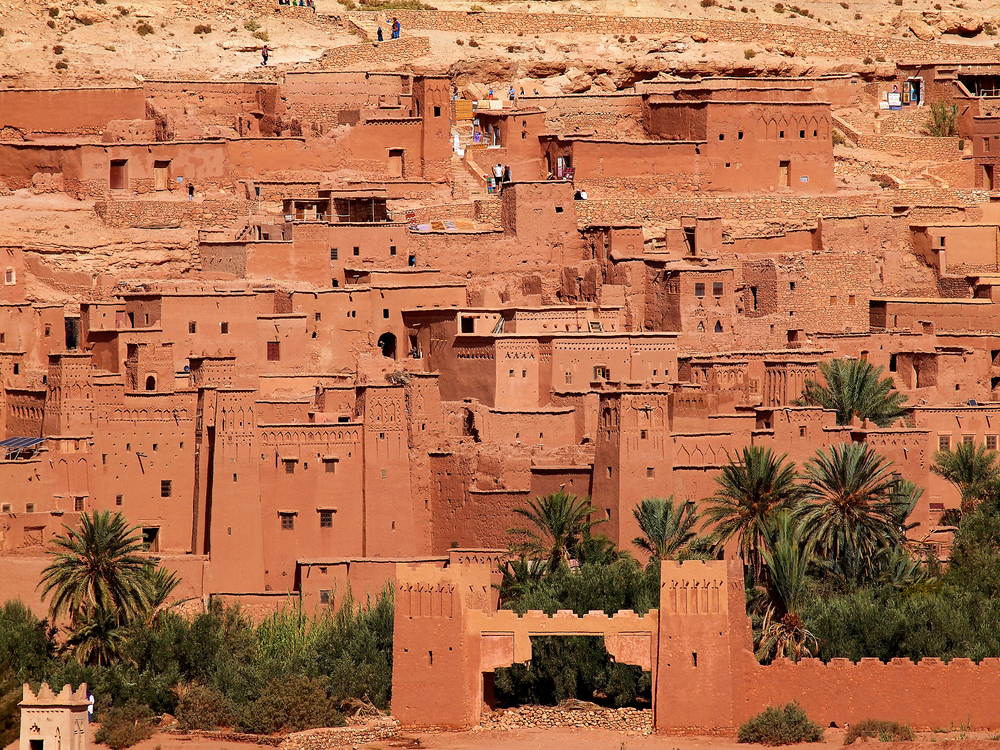
6. Traditional Berber Crafts and Souvenirs
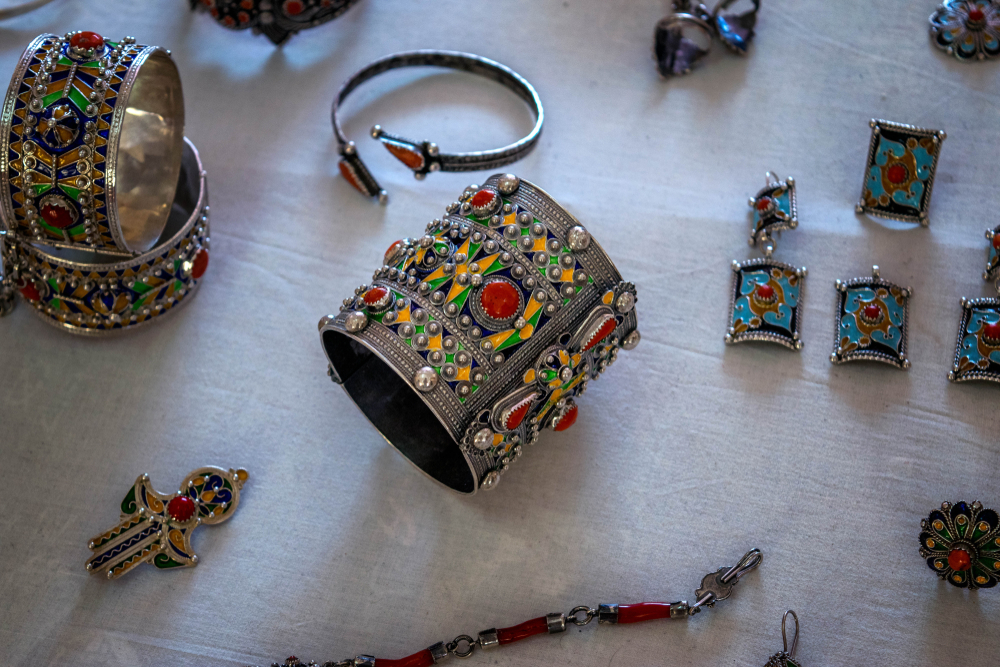
Carpets and Rugs: The Atlas Mountains are known for their handwoven rugs and carpets. Consider purchasing a unique piece of Moroccan craftsmanship as a souvenir. Each rug tells a story through its design and colors.
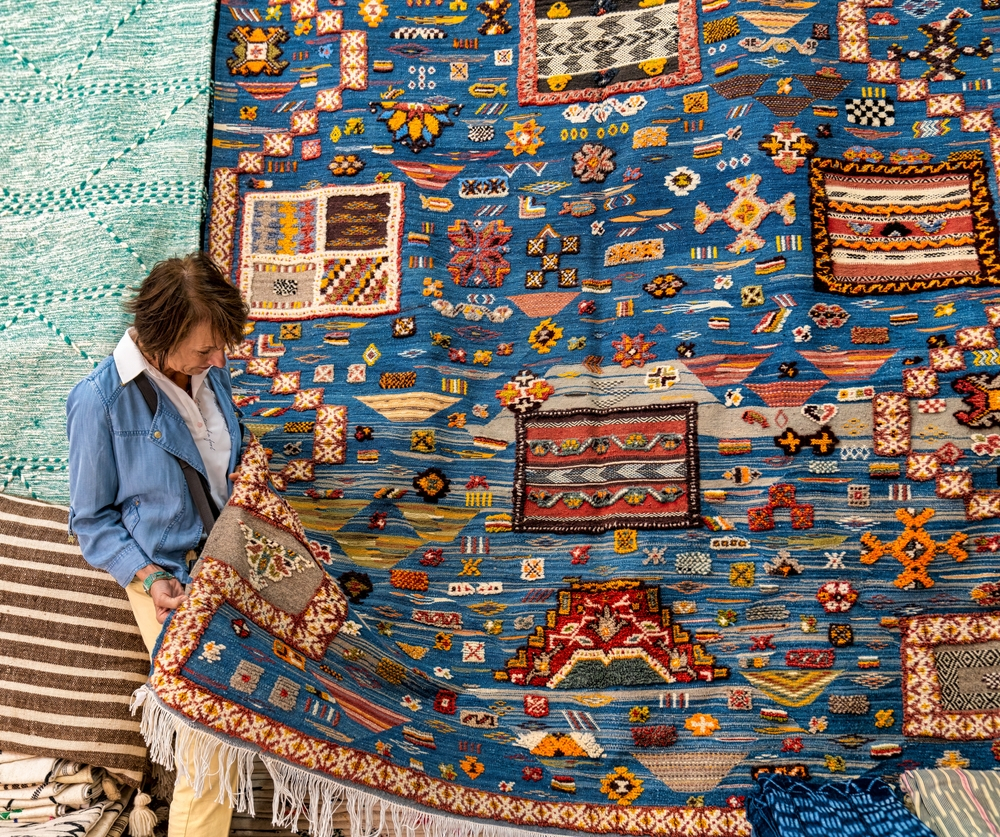
Handwoven Baskets: Artisans in the Atlas Mountains create beautiful handwoven baskets using natural materials like palm leaves and straw. These baskets are not only functional but also make for excellent keepsakes.
Argan Oil Products: Argan oil is produced from the argan tree, which grows in the region. It’s used in various beauty and culinary products. Purchase argan oil, soaps, and skincare items as a token of your time in the Atlas Mountains.
7. Atlas Mountains Cuisine and Culinary Adventures
Savory Tajines: While in the Atlas Mountains, savor the flavors of traditional Moroccan cuisine. Tajines, slow-cooked dishes named after the earthenware pots they’re cooked in, are a must-try. Enjoy variations with meats, vegetables, or preserved lemons.
Mint Tea and Pastries: Indulge in Moroccan hospitality by enjoying mint tea, a sweet and aromatic beverage. Pair it with an assortment of pastries like almond-based treats and honey-soaked delights.
Berber Specialties: Don’t miss the opportunity to taste Berber specialties, such as tagella (a flatbread) and couscous dishes prepared with local ingredients. These dishes reflect the region’s rich culinary heritage.
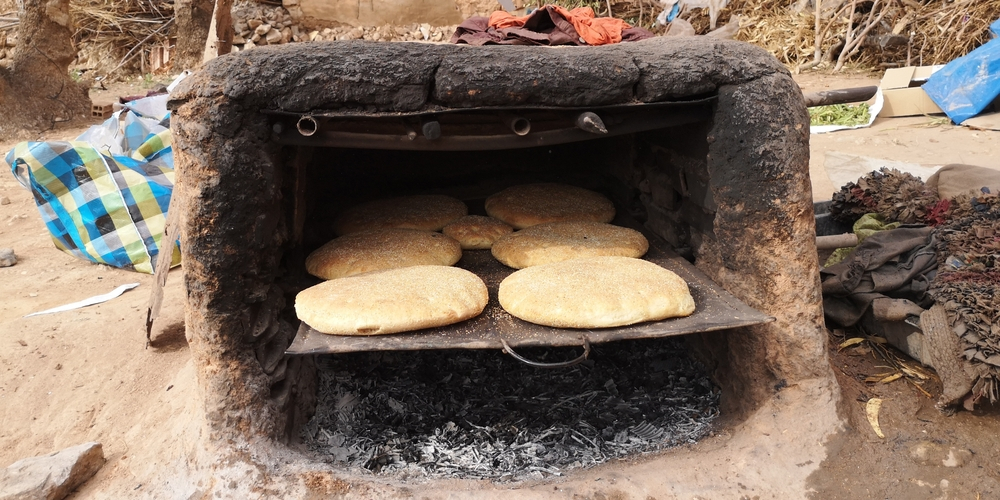
In the next section, we’ll discuss safety precautions and cultural etiquette to ensure a respectful and enjoyable visit to the Atlas Mountains.
8. Safety and Respect in the Atlas Mountains
Trekking Safety Tips:
- Prioritize safety during your mountain treks by checking weather conditions and trail information before setting out.
- Ensure you have proper hiking gear, including sturdy footwear, warm clothing, and essential supplies like water, snacks, and a map.
- Travel with a group or hire a local guide who knows the terrain and can assist in case of emergencies.
Cultural Etiquette:
- Respect the customs and traditions of Berber communities you encounter. Ask for permission before taking photos, and be mindful of their hospitality.
- Dress modestly, especially when visiting religious sites and villages.
- Dispose of waste responsibly and leave no trace to help protect the natural beauty of the Atlas Mountains.
9. Conclusion
The Atlas Mountains offer an enchanting escape into Morocco’s natural beauty and cultural heritage. Whether you’re hiking along scenic trails, immersing yourself in Berber traditions, or savoring the flavors of Moroccan cuisine, your journey through these peaks will be a memorable adventure.
The Atlas Mountains: A Natural Retreat: From the grandeur of Mount Toubkal to the warmth of Berber hospitality, the Atlas Mountains provide a perfect blend of outdoor exploration and cultural immersion. This pristine corner of Morocco invites you to unwind, connect with nature, and discover the heart of the Atlas.
10. FAQ Section
When is the best time to visit the Atlas Mountains?
The best time to visit the Atlas Mountains is during the spring and fall when the weather is pleasant for hiking. Summers can be hot, while winters can bring snow to higher elevations.
Are hiking guides necessary for exploring the mountains?
While experienced hikers can explore some trails independently, hiring a local guide is advisable for safety, navigation, and cultural insights.
What should I wear for trekking in the Atlas Mountains?
Wear comfortable, layered clothing suitable for changing temperatures. Sturdy, waterproof hiking boots are essential. Don’t forget a hat, sunglasses, and sunscreen for sun protection.
Are there any specific customs to follow when visiting Berber villages?
Respect local customs, ask for permission before taking photos, and be mindful of cultural traditions. Engage respectfully with villagers and appreciate their hospitality.
Your Atlas Mountains adventure promises a unique blend of natural wonders, cultural encounters, and unforgettable experiences. As you depart this stunning region, may the memories of your time among Morocco’s peaks inspire your future explorations. Safe travels!

